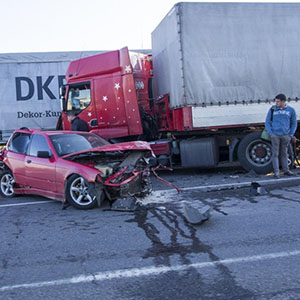Insurer Not Allowed to Intervene in Underlying Case
Truck AccidentsIn the case of Lexington Insurance Company v. Towanna James, as Personal Representative of the Estate of Noami James, et al, Case Number 1D19-1954 (Fla. 1st DCA May 8, 2020), Florida’s First DCA held that an insurance company with the amount of damages limited by a bankruptcy court order was not allowed to intervene in the underlying lawsuit.
Relevant Case Facts
This case tragically involved the wrongful death of Noami James. Her car was stopped behind a school bus when she was struck by a semi-truck in a rear end collision. Ms. James’ lawsuit included claims for negligence, negligent entrustment, strict vicarious liability, and negligent hiring and retention.
During the course of the lawsuit, Seatruck (who owned the truck and employed the driver) declared bankruptcy.
This resulted in an automatic stay of the case. The bankruptcy court, thereafter, entered an order lifting the automatic stay of bankruptcy so long as the plaintiff does “not seek recovery against [Seatruck] beyond the extent of insurance coverage outside of this bankruptcy case.”
In any event, Seatruck had a total of $2 million in insurance available for this accident. Other claimants were able to settle their claims with Seatruck for a total of $1,999,990.00. This left a mere $10.00 in insurance available for Ms. James’ claim.
Legal Analysis and Appeal
Naturally, because there was only $10 in applicable insurance remaining, Lexington Insurance Company wanted to intervene into Ms. James’ case. Again, remember that the only reason why Ms. James’ case was permitted to proceed is because of the bankruptcy order capping damages to the insurance funds outside of the bankruptcy estate (in the alternative, rather than agreeing to such an order, the plaintiffs could have sought damages in both the bankruptcy estate and through insurance but they would have been required to wait until the bankruptcy judge allowed them to do so).
The trial judge denied Lexington Insurance Company’s right to intervene in the case and Lexington appealed.
On appeal, Florida’s First DCA held that Lexington only had a contingent interest in the outcome of the case and that the trial judge was correct to deny their right to intervene.
In making this decision, the court cited a two-part test:
- The court must determine that the interest asserted by the party seeking intervention is of such a direct and immediate character that the intervenor will either gain or lose by operation of the legal outcome
- The court should limit intervention to the extent necessary to protect the interests of all parties
Considering that test and that Lexington’s indemnity obligations would have only totaled a mere $10.00 regardless of the outcome of the case, why would Lexington spend the money to intervene in this case and to take an appeal upon losing?
The answer is because Lexington was not only responsible to pay the $10.00 in the event of a judgment, but it was also responsible to pay for the cost of defense. Allowing the insurance company to escape its defense obligation upon paying the remaining indemnity limit would have saved Lexington a lot of money.
In addition, allowing the insurance company to dump its remaining limits would render further litigation pointless unless there is also a right to insurance bad faith.
Damages for insurance bad faith would still be outside of the bankruptcy estate and would still be permitted by the order lifting the automatic bankruptcy stay. However, a case involving bad faith for dealing with multiple parties may be difficult (see U.S. Security Insurance Company v. Contreras (Fla. 2006)).
Talk To An Attorney About Your Case
At Russo Law, our goal is to help people who have been injured in accidents. If you would like more information on how we can you with your case, please call us for a free consultation. We are happy to answers any questions that you may have about your Florida truck accident case.


